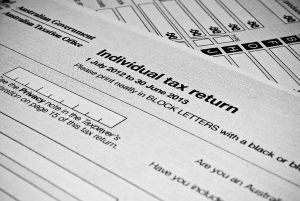Understanding Personal Tax Return in Australia
Introduction
When it comes to navigating the intricacies of a country’s tax system, it’s crucial to have a clear understanding of the process. In Australia, the personal tax return is a fundamental component of the taxation system, requiring individuals to report their income, deductions, and credits to determine their tax liability. This article delves into the essential aspects of personal tax returns in Australia, shedding light on the key components and guidelines that individuals need to be aware of.
What is a Personal Tax Return?
A personal tax return is a document that individuals in Australia are required to submit to the Australian Taxation Office (ATO) annually. This document provides a comprehensive overview of an individual’s financial activities throughout the year, including their income from various sources, deductions, and potential tax offsets. The purpose of a personal tax return is to calculate the amount of income tax owed to the government or the refund owed to the taxpayer.
Key Elements of a Personal Tax Return
A personal tax return in Australia consists of several key elements that individuals must accurately report. These include:
1. Income
Income reporting is a crucial aspect of the personal tax return process. All sources of income, including salary, wages, dividends, interest, rental income, and capital gains, must be reported. The ATO utilizes this information to determine an individual’s taxable income.

2. Deductions
Deductions play a significant role in reducing an individual’s taxable income, subsequently lowering their tax liability. Taxpayers are allowed to claim deductions for various expenses related to work, investments, and self-education. Common deductions include work-related expenses, charitable contributions, and costs associated with managing investments.
3. Tax Offsets and Credits
Tax offsets and credits directly impact the final tax liability. These are incentives provided by the government to encourage certain behaviors or support specific demographics. Examples of tax offsets include the Low and Middle Income Tax Offset (LMITO), which benefits individuals with lower and middle incomes, and the Seniors and Pensioners Tax Offset (SAPTO), designed to assist seniors and pensioners.
Filing a Personal Tax Return
1. Tax Filing Obligations
Not everyone is required to file a personal tax return in Australia. Individuals with straightforward financial situations, such as those who only earn income through employment and have no additional deductions, may not need to lodge a tax return. However, many individuals, including self-employed individuals, investors, and those with complex financial arrangements, are obligated to file a return.
2. Lodging Methods
The ATO offers multiple methods for lodging personal tax returns. These include:
Online via myTax: The myTax platform is an online service provided by the ATO that allows individuals to complete and lodge their tax returns electronically. It offers pre-filled information, making the process smoother and more efficient.
Using a Registered Tax Agent: Many individuals choose to engage a registered tax agent to assist them with preparing and lodging their tax returns. Tax agents are professionals with expertise in taxation laws and regulations.

3. Important Deadlines
It’s crucial to be aware of the deadlines for lodging personal tax returns in Australia. The typical deadline for lodging a tax return is October 31st following the end of the financial year (July 1st to June 30th). However, if you engage a registered tax agent, you may be eligible for an extended deadline.
Benefits and Consequences
1. Benefits of Lodging a Personal Tax Return
Lodging a personal tax return offers several benefits, including:
Potential Refunds: Individuals who overpay their taxes throughout the year may be entitled to a tax refund after lodging their return.
Access to Government Support: Some government benefits and programs require individuals to have up-to-date tax returns. By lodging your return, you ensure eligibility for these programs. https://celestinos.com.au/sydney-tax-agent/
Compliance with Legal Requirements: Filing a tax return is a legal obligation in Australia for those who meet the income thresholds.
2. Consequences of Failing to Lodge
Failing to lodge a personal tax return can lead to various consequences, including:
Penalties and Interest: The ATO may impose penalties and interest on overdue taxes, increasing the overall amount owed.
Loss of Benefits: Individuals who do not lodge a return may lose access to government benefits, such as family assistance payments.
Legal Action: In severe cases, the ATO may initiate legal action to recover unpaid taxes.
Conclusion
In Australia, the personal tax return is an integral part of the taxation system, allowing individuals to fulfill their tax obligations and determine their tax liability accurately. By understanding the key components of a personal tax return, including income, deductions, tax offsets, and credits, individuals can navigate the process with confidence. Whether using online platforms like myTax or seeking assistance from registered tax agents, meeting tax filing deadlines and obligations is essential to avoid potential consequences. Ultimately, staying informed about personal tax returns empowers individuals to make informed financial decisions and ensure compliance with Australian tax laws.


